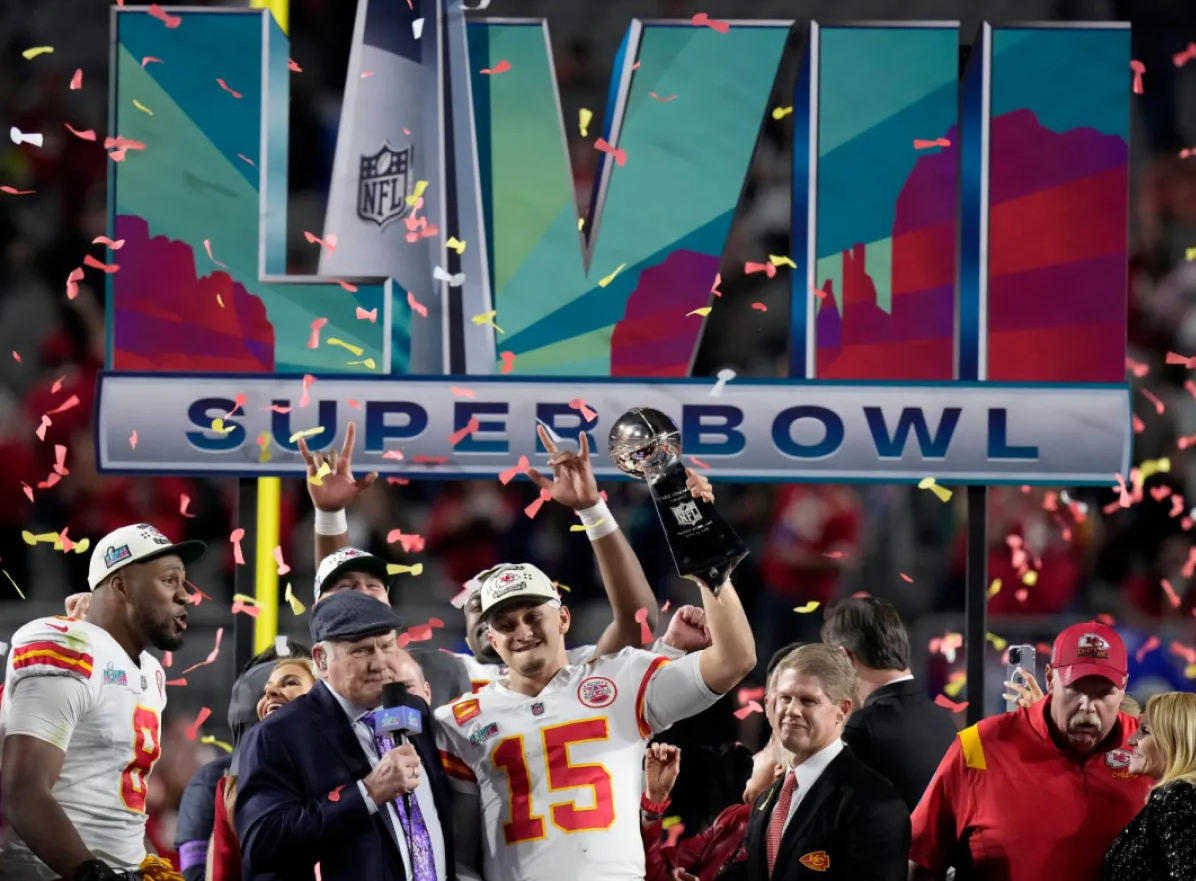The transformation of the Kansas City Chiefs from beloved champions to perceived villains by some fans can be understood through psychological concepts such as the “dynasty fatigue” and the “us vs. them” mentality. As the Chiefs consistently perform at the top level, winning championships and dominating opponents, they begin to evoke feelings of envy and resentment among supporters of other teams. This phenomenon is rooted in social identity theory, which suggests that people derive part of their identity from their group affiliations, such as sports teams. When one team repeatedly outperforms others, fans of rival teams may feel threatened, leading to a shift in perception where the dominant team is viewed as an obstacle or adversary. This change in attitude is not uncommon in sports, where continued success by a single team can lead to a narrative of them being the “bad guys,” as fans rally against the perceived imbalance and root for underdogs to restore competitive parity.
In the world of sports, the narrative can shift dramatically. Teams that were once celebrated for their success can suddenly find themselves cast in the role of the villain. This phenomenon is particularly evident in dynasties, where sustained success leads to a backlash from fans and neutrals alike. The Kansas City Chiefs, a team that has enjoyed remarkable success in recent years, are no exception. But why do fans turn against dynasties? Psychology offers some intriguing insights.
- The Underdog Effect: Humans have an innate tendency to root for the underdog. This stems from a sense of fairness and the desire to see those perceived as weaker overcome the odds. When a team like the Chiefs dominates, the narrative shifts from a story of triumph to one of inevitability. Fans start to cheer for the challengers, hoping to witness a dramatic upset.
- Boredom with Predictability: Success breeds predictability, and predictability can lead to boredom. Sports fans crave excitement and unpredictability, and when one team consistently wins, the suspense diminishes. The Chiefs’ repeated appearances and victories can lead to a sense of monotony, causing fans to lose interest and even turn against them.
- Jealousy and Resentment: Success often breeds envy. As the Chiefs continue to win, fans of other teams may experience feelings of jealousy and resentment. This is particularly true if the Chiefs defeat those fans’ favorite teams. This emotional response can manifest as hostility towards the Chiefs, painting them as the villains in the narrative.
- The Halo Effect and Its Inverse: When a team is winning, their positive attributes are often highlighted. However, as they continue to dominate, any small misstep or controversy becomes magnified. This inverse halo effect can lead to a negative perception, where the Chiefs’ on-field success is overshadowed by off-field incidents or perceived arrogance.
- Media Influence: The media plays a significant role in shaping public perception. As the Chiefs continue to succeed, media narratives can shift, portraying them as the team to beat or even the villain. This portrayal can influence fan perceptions, leading to a broader sentiment of animosity toward the team.
- Cognitive Dissonance: Fans often experience cognitive dissonance when their desire for fairness and competition clashes with the reality of a dominant team. To resolve this discomfort, fans may rationalize their dislike for the Chiefs, labeling them as arrogant or undeserving despite their proven success.
In conclusion, the Kansas City Chiefs’ transformation into villains in the eyes of some fans is a multifaceted phenomenon driven by psychological principles. As long as they continue to dominate, they will likely remain polarizing figures in the sports world. Understanding these psychological underpinnings can provide fans with a deeper appreciation of the dynamics at play and perhaps even lead to a renewed respect for the excellence that dynasties represent.
